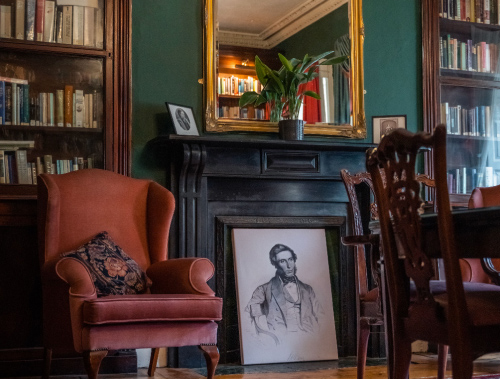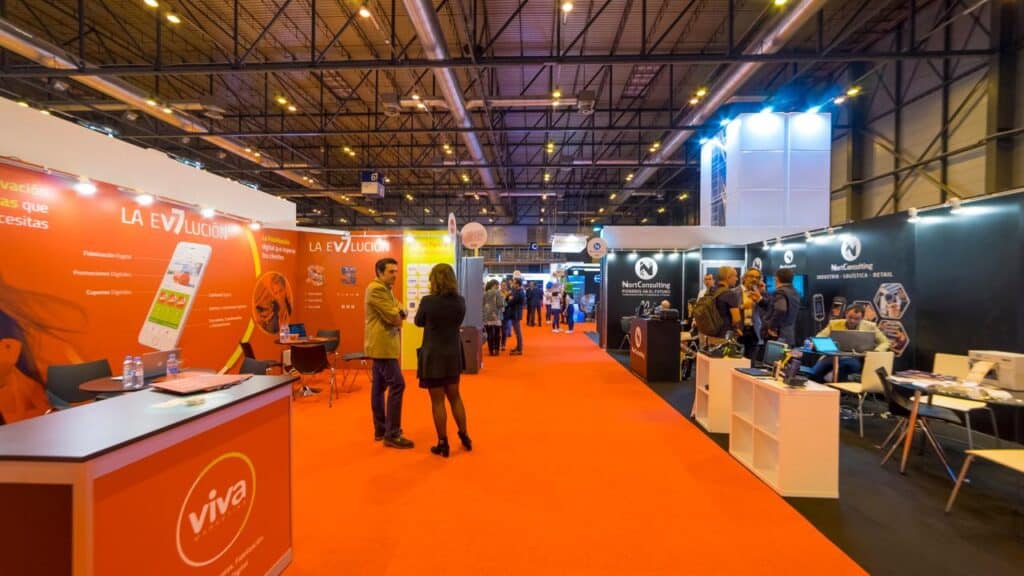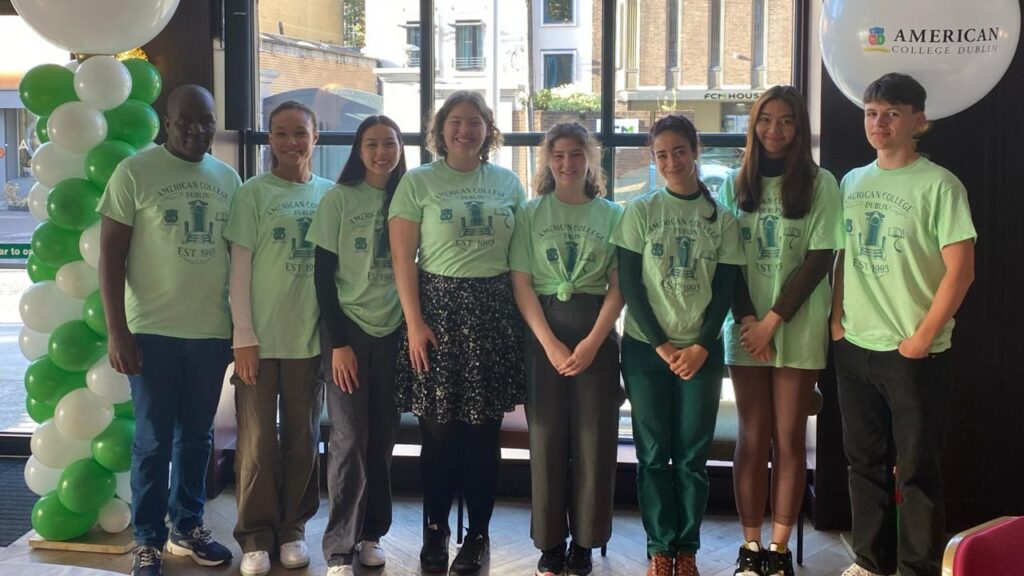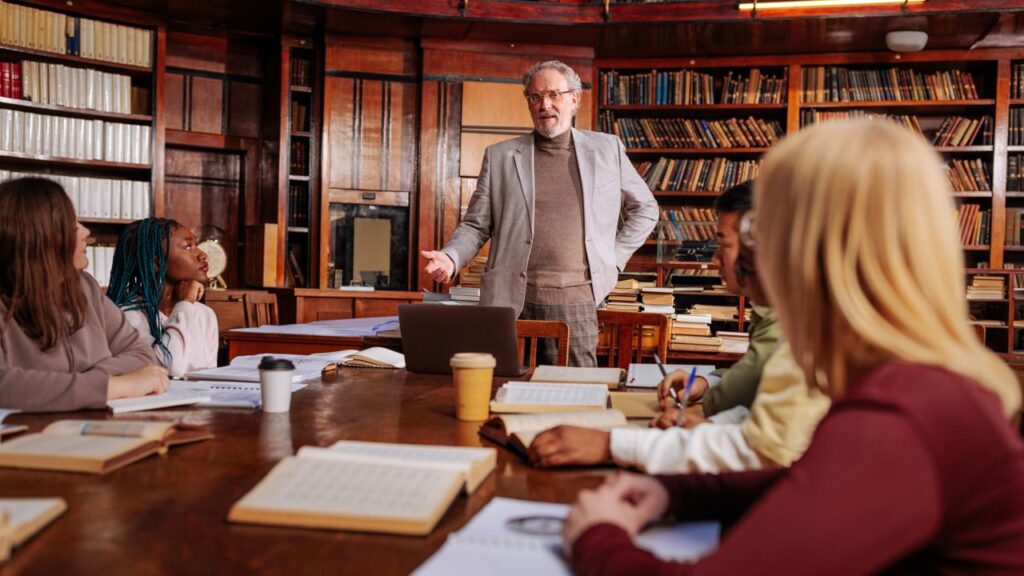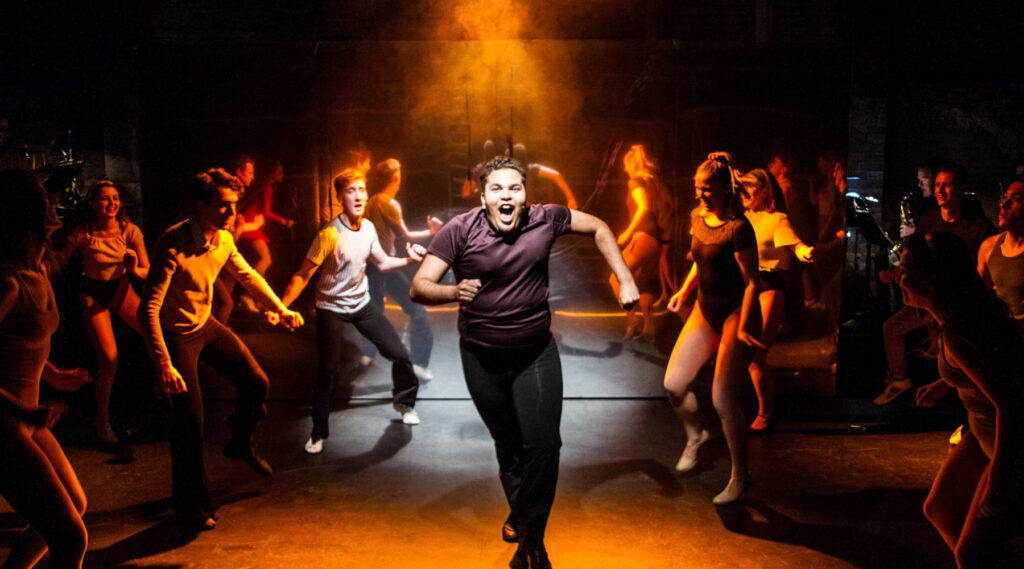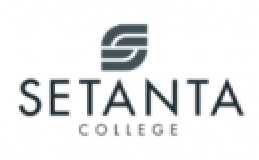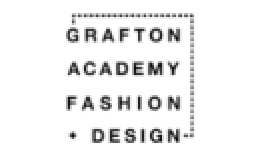Undergraduate
Application Method
Direct & Audition
€9500
Duration
4 Years (Full-time)
€7500
Location
Dublin
Performing Arts
Start Month
September
The four-year Bachelor of Fine Arts in Performing Arts offers a conservatory and holistic approach to the performing arts, one that not only concentrates on performance from a participatory perspective (that is to say, on being a performer), but also prepares students for the wide and exciting range of careers available in the performing arts industry.
While performance remains a central aspect of the program, students are also prepared for the vast array of work that supports and produces performance, such as directing and staging, creating written material for performance, production, management, marketing and funding of the performing arts.
The program is based around live theatrical performance (with elements of recording used for diagnostic and development purposes), but at the same time, a graduate is prepared for further study in all cognate specialisms in the performing arts, as well as entry into a professional career.
The program also serves as preparation for students to participate in a variety of postgraduate programs such as the MFA in Creative Writing and MB in International Business.
The program’s structure combines practical workshops and academic classroom modules. Approximately two-thirds of total weekly contact hours consist of modules devoted to practical aspects of performance. Students receive instruction in rising levels of live performance, including acting, voice control, dance and movement, direction and production. Student's progress involves the development and accumulation of material for a portfolio which provides evidence of their achievement of the program’s required learning outcomes and functions as a basis for individual assessment. The remaining one-third of weekly contact hours concentrates on class-based academic instruction that supports and contextualises the ascending levels of practical training and includes such subjects as theatre history, performance theory, drama and politics, creative writing, management and marketing.
The practical modules are based on a rotating roles model in which all students take turns specializing in each of six roles in the course of the year: lead performance, support performance, direction, production, writing, and business (management, marketing and finance). Notwithstanding these separations of roles, students are required to demonstrate an understanding of the integration and interdependence of the activities and to provide mutual support, encouragement and help for all activity areas and for the group as a whole. The program lays great stress on the development of an ensemble ethic; alongside the development of the individual’s creative impulses and abilities, the degree seeks to imbue students with an awareness of the paramount importance of responsibility to the collective in performing arts practice.
In the first year of the program, students are introduced to fundamental concepts of acting, including action, relaxation, spontaneity, monologues, projection, presence, substitution, gesture, movement, character analyses, voice and diction. These technical perspectives are developed through the study of the Stanislavski system and the Meisner technique. Dance and movement foundational skills include a broad introduction to contemporary dance styles, and the development of kinaesthetic, rhythmic, spatial and body awareness; instructional perspectives include the Feldenkrais method, Laban movement analysis and contact improvisation. Modules on directing and production provide a practical analysis of approaches since the nineteenth century, including realism, naturalism, symbolism, epic, Brechtian and post-Brechtian methodologies.
In the second year, the focus shifts increasingly towards the application and development of the skills encountered in the first year, with an accompanying analysis of key forms and practitioners, including devising, improvisation, clowning, mime, characterization and the Chekhov technique; the directing approaches of Antonin Artaud, Jerzy Grotowski and Peter Brook; and ongoing development of dance and movement competencies, including choreography, improvisation, enhancement of bodily coordination and movement vocabulary, improved conditioning to support technical capacity, and further exploration of contemporary dance styles. Students also begin to examine the practice of playwriting, initially through adaptations of canonical works, but increasingly by way of producing entirely original works for performances by the class. The movement towards a practical application of performance skills in year two is supported in both semesters by event management modules, which use as their case studies the designing, planning and running of various performing arts events by the class group.
The third year of the program concentrates on the practice of performing arts by the class. Although consideration is given to historical and contemporary approaches, the overriding focus is now on producing from within the group’s internal resources largely or completely original presentations for public performance. Whereas in the previous two years, all members of the class have practised in turns the six rotating roles, in the final year the roles are assigned by the program teaching team on the basis of individual abilities and proclivities identified in each student over the preceding semesters. Master class presentations are provided by established actors, dancers and directors, giving the class the opportunity to engage directly with those who have had significant experience in various aspects of the performing arts. These presentations are combined with workshop classes which prepare students for participation in the performing arts industry, with sessions offering guidance by experienced practitioners on matters such as curriculum vitae and headshot preparation, interview and audition preparation and mock auditions.
Throughout their studies, participants are involved in a number of didactic and illustrative performance exercises, culminating in a showcase performance at the end of each academic year. The teaching staff provide guidance and advice in the preparation of these performances. At the same time, the class is ultimately responsible for all aspects of the performance, and assessment is based both on the individual execution of assigned roles and on the performance of the group as a whole. The process of development of responsibility and preparedness for a career in the performing arts culminates in the 1200-hour internship, completed as a fourth year or incrementally in the course of the three years during summer and other breaks. As an alternative to the internship, with the approval of the head of the program, students may undertake the Production and Performance Project, in which with other students from the group, a major performance project is developed, rehearsed and documented in a portfolio over the course of the year and delivered in the summer.
In addition to completing an application online, an interview and audition are required for entry to the program. For the audition, applicants should prepare two spoken monologues: one classic and one modern; two contrasting musical theatre songs: one must be pre-1965; and partake in a dance assessment.
In addition to completing an application online, an interview and audition are required for entry to the program. For the audition, applicants should prepare two spoken monologues: one classic and one modern; two contrasting musical theatre songs: one must be pre-1965; and partake in a dance assessment.
In addition to completing an application online, an interview and audition are required for entry to the program. For the audition, applicants should prepare two spoken monologues: one classic and one modern; two contrasting musical theatre songs: one must be pre-1965; and partake in a dance assessment.
Along with the academic knowledge students receive throughout their program, they will also acquire and develop transferable career skills from their degree discipline.
These skills include:
Communication
Writing skills
Creativity
Effective presentation techniques
Management, marketing and fundraising abilities
Interpretational and compositional competency with written texts
Organisational skills
Research skills
Time management
These are applicable not only in the context of the many career paths within performing arts but also in a wide variety of social, cultural and business vocations.
Quality Assurance Manual
The Student Handbook
The Return to Title IV Policy
The SAP Policy
Student_Information
General Data Protection Regulation (GDPR) Policy
Erasmus Charter for Higher Education
Non-EU students: €9500
Have some questions about this course?
Interested in enrolling on a course with us, but need more information? Fill the form below to receive personalized answers to your questions.

